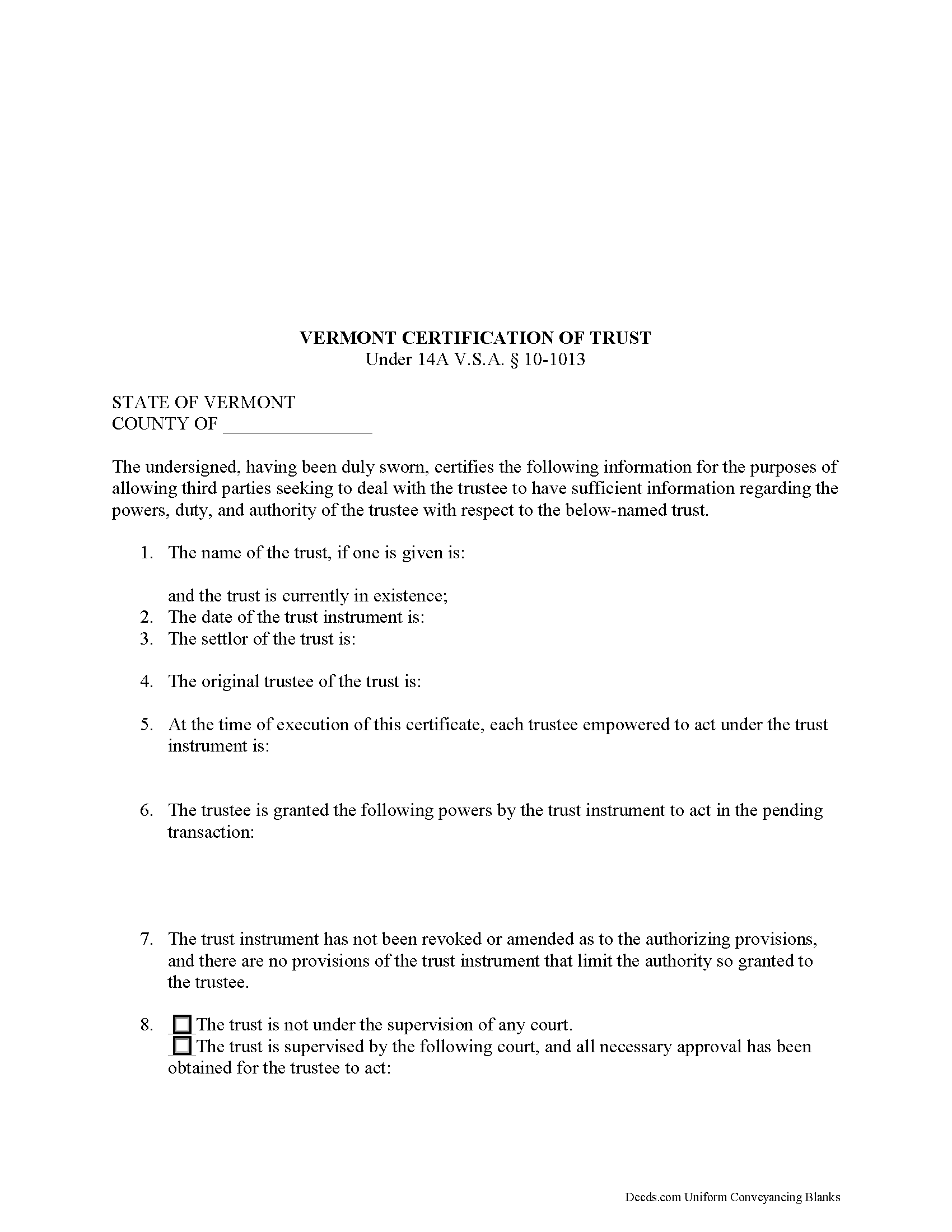Vermont Certificate of Trust Forms

Vermont Certificate of Trust Overview

How to Use This Form
- Select your county from the list on the left
- Download the county-specific form
- Fill in the required information
- Have the document notarized if required
- Record with your county recorder's office
Codified at 14A V.S.A. 10-1013, the certification of trust is a document signed and either presented or recorded by a trustee in order to give notice to parties outside of the trust arrangement that a trust exists and that the trustee has the authority to enter into the transaction at hand. The certificate is made in lieu of recording the entire trust instrument, and is effective "as though the full trust instrument had been recorded, filed, or presented" (14A V.S.A. 10-1013(b)).
The certification of trust presents the trust's name and date, the names of the trust's settlor and original trustee, the name and address of the acting trustee, and a summary of the relevant provisions of the trust authorizing the trustee to act in the transaction at hand.
The document contains certified statements made by the executing trustee that the trust exists; that there are no provisions of the trust instrument which limit the powers of the trustee enumerated within the certificate; and that the trust is either unsupervised by a court, or, if supervised, the trustee has obtained the required approval to act.
A certificate of trust is recorded in support of business involving trust property. When the document is used in real property transaction, a legal description of the subject property and parcel identifying information should be included. All documents pertaining to real property are recorded at the municipal level in Vermont, with the exception of Buels Gore, which records via the Chittenden County Clerk. The document must meet all state and local requirements relating to form and content, and be properly notarized before recording.
A certification of trust "provides the person relying on the trustee's authority [with] a level of protection". The sworn statements made by the trustee which comprise the certificate may be relied on as fact. Recipients of a certificate of trust may request the supporting excerpts from the trust instrument that designate the trustee and confer the relevant powers upon the trustee. A trustee is also required to give notice of any amendment or revocation of a certificate pursuant to 14A V.S.A. 10-1013(d).
Consult a lawyer with questions concerning trusts and certifications of trust in Vermont.
(Vermont COT Package includes form, guidelines, and completed example)
Important: County-Specific Forms
Our certificate of trust forms are specifically formatted for each county in Vermont.
After selecting your county, you'll receive forms that meet all local recording requirements, ensuring your documents will be accepted without delays or rejection fees.
How to Use This Form
- Select your county from the list above
- Download the county-specific form
- Fill in the required information
- Have the document notarized if required
- Record with your county recorder's office
Common Uses for Certificate of Trust
- Transfer property between family members
- Add or remove names from property titles
- Transfer property into or out of trusts
- Correct errors in previously recorded deeds
- Gift property to others